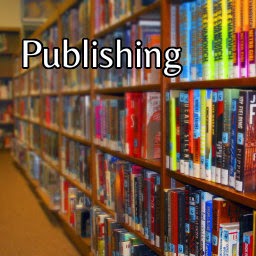As I started talking about yesterday , an author named E. J. D’Alise didn’t submit a story to the upcoming anthology No Shit, There I Was, instead choosing to publish the story on their blog. Yesterday’s blog post addresses the first reason; the second was:
There is one other thing . . . almost every market asking for submissions stresses the following:
“We are particularly interested in seeing stories from underrepresented populations (eg: people of color, people with disabilities, LGBT people).”
I think they mean members of those populations writing about concerns of said populations. Or maybe, having members of said populations as characters in said stories.
They went on, but I want to hit this part first. The answer to this is “both“.
This is why I wanted to look at the types of writers who were submitting to Alliteration Ink. Our submitters skewed both male and white (far more the latter than the former). When talking to people about the issues around a call for submissions, I clearly heard folks in these groups tell me they didn’t submit to markets due to a fear of being marginalized or shut out.
Second, I do want more representation of other types of characters in the stories I publish. I’m all too aware of stories like where MLK had to convince Nichelle Nichols to stay on Star Trek, and I’ve firsthand witnessed the slow progress of minorities of all types in media over my lifetime.
I want the people who read the books I publish to be able to find both authors like them and characters like them as well as those who are radically different.
[this quote is out of order]
Rather, I want to stress honesty, honor, kindness . . . traits I believe cross all manners of boundaries, from sexual to ethnic to abled or disabled. The whole purpose of reading, for me, is being transported into another world and I do that by projecting myself into the character or characters I read about. Also, if I write of human struggles, I want them to be just that. Human struggles that are common to all, regardless of superficial trappings.
I suspect that D’Alise means that they don’t want “issue” stories; that is, stories where the central focus (and FSM forbid, the “moral”) focuses on these differences.
I do not particularly want those stories either. Or any other “message” stories where the point of the story is to impart some kind of (often political) lesson.
I want good stories. Those stories may eventually impart some realization about yourself or others, but that should never be the point of the story, unless your name happens to be Orwell. Almost without exception, “issue” or “message” stories – regardless of whether or not you agree with the issue – are horrible dreck, because they focus on the issue instead of the story.
I applaud them for it, but I don’t normally describe my characters. I don’t put them in situations where ethnicity or sexual orientation are germane to the story. If you read one of my stories, you can assume whatever ethnic or sexual attribute you want. For that matter, you can assume fat, skinny, tall, short, blonde, hirsute, ugly, beautiful, young, old . . . you get the point.
This part I want to challenge. I am a large (5’10”, over 300#, broad shouldered) guy. I can move through crowds at festivals, zoos, museums, etc, without effort in a way that any woman I’ve dated simply cannot without expending a lot of effort. (This hypothesis has been tested.) I met some folks last weekend, and I could see the way they treated and looked at me change as they first saw my long hair and beard, then heard me speak, then heard me mention my prior military service.
While there are some socioeconomic factors which are not always immediately obvious, they do change the way we experience the world.
It’s important to note here that this is not just some kind of agenda – this makes for better writing. Your characters are going to be creatures of their environment – and that environment isn’t the same for all people. Failing to realize this is one of the reasons we get female characters who are little more than male characters with bigger breasts, for just one example.
Paying attention to these things makes your writing better.
And when you can view the common human struggles through the lens of multiple points of view, it’s all the more compelling.

